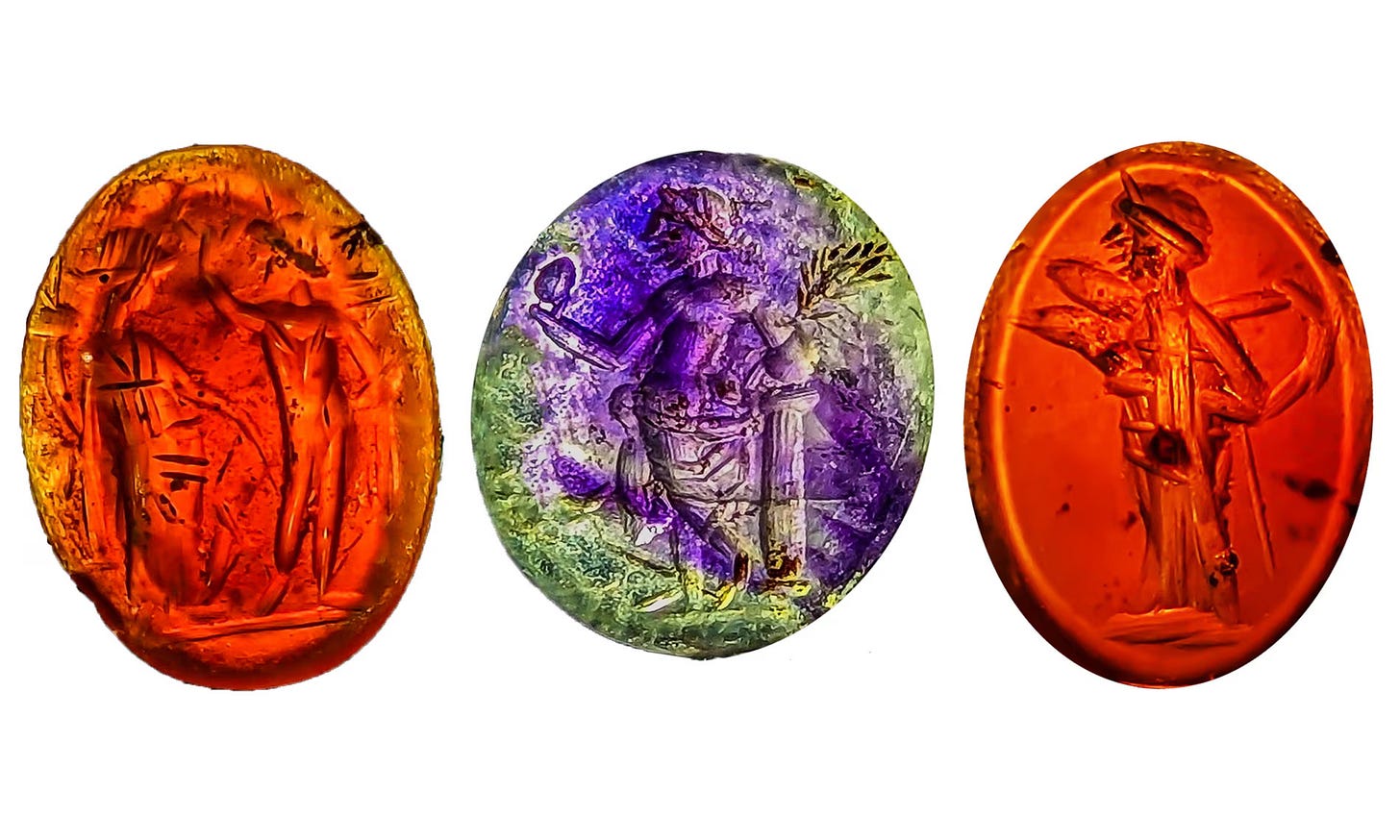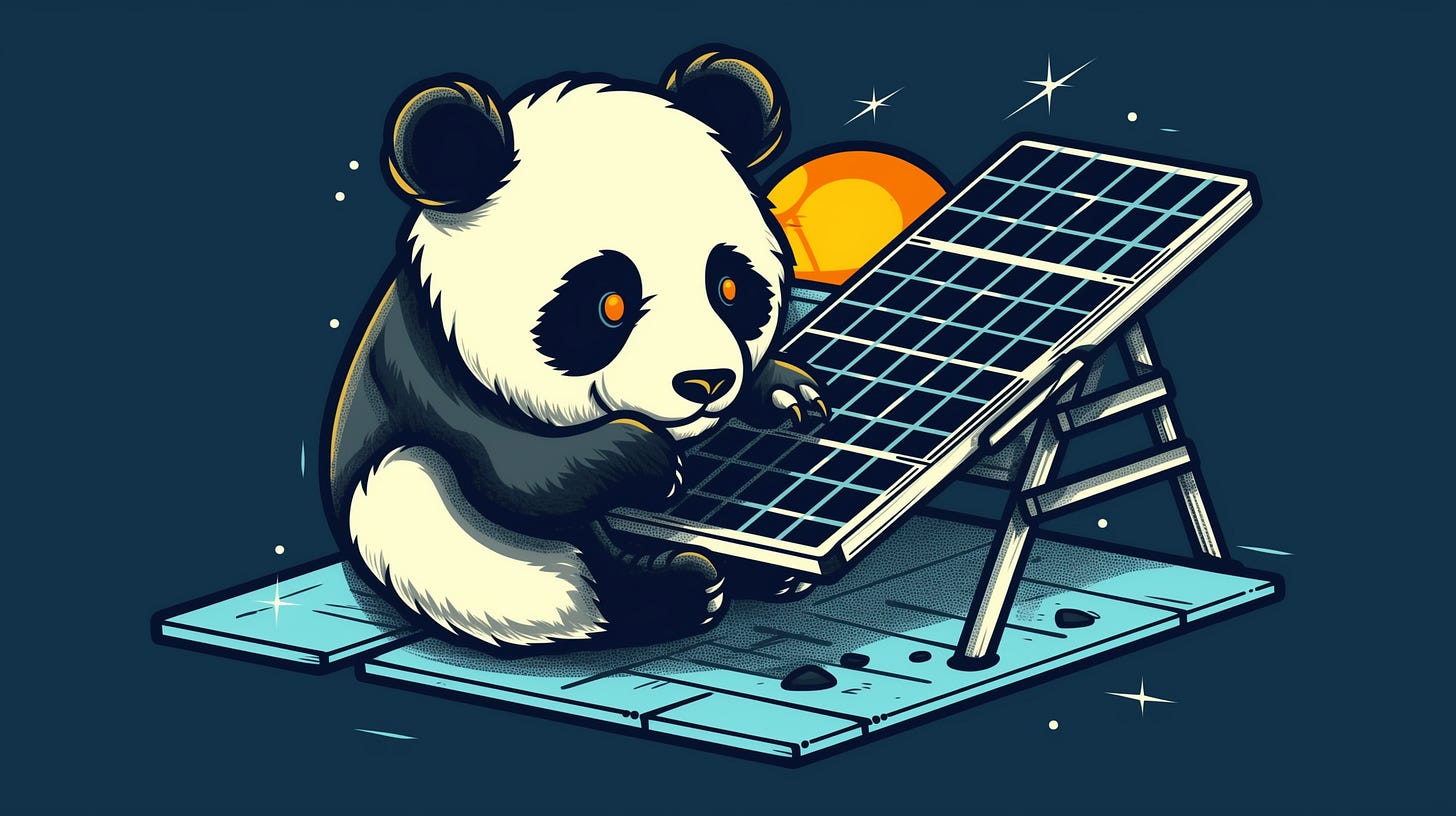💔 Heart alert: How microplastics in arteries affect our health
Hey there!
It’s been some time since my last newsletter, so thanks a ton for sticking with me. A hearty welcome to all the new subscribers! I plan to resume regular updates by next week, but first, let’s catch up on some cool science stuff.
Tiny particles, big risks
Microplastics are everywhere, including in water, air, food, and even our bodies. A recent study examined over 200 people having surgery and found that nearly 60 per cent had these tiny plastics in a major artery. Most patients with microplastics were younger, mostly men, and more often smokers or had diabetes or heart disease. Those with microplastics were more likely to have serious heart problems or die within about three years.
Researchers also found that people with more microplastics in their arteries often had higher levels of body inflammation, which can be bad for health. This inflammation might make it more likely for arteries to get blocked. However, the study doesn’t say for sure that microplastics are the cause of these health problems. Other factors, such as how much money people make, their jobs, where they live, or their lifestyle choices, could also affect their health.
From innovation to imitation
Since its launch in November 2022, ChatGPT has been a huge help for scientists, making it easier for them to write papers and apply for funding. In a 2023 survey, about 30 per cent of 1,600 researchers said they used AI to help write their papers, and 15 per cent used it for grant applications. These AI tools don’t just help with writing; they also assist in coding, developing research ideas, and reviewing previous studies.
Large language models such as ChatGPT can improve writing and translation for scientists who don’t speak English as their first language. AI is also great at taking over boring tasks.
But there’s a downside: as more scientists use AI to help write, the people checking and reviewing these papers might have too much on their plate. While many scientists are honest about using AI, some might quietly rely on it to produce more work, but not necessarily better research.
And then there’s the plagiarism problem. Creators, from musicians to journalists, argue that when AI is trained on their copyrighted works, it creates content that’s too similar to the originals. A report from Copyleaks backs them up, showing that 60 per cent of the content from GPT-3.5 has some plagiarism issues. Imagine if your robot vacuum started copying your dance moves—that’s the level of mimicry we’re talking about!
This is especially true in computer science, where the AI’s work shows 100 per cent similarity to existing content. However, when it comes to theatre, humanities, and the English language, GPT-3.5 seems to be more original, with very low similarity scores.
So, as researchers embrace AI for its efficiency, they grapple with the blurred lines between innovation and imitation, challenging the essence of originality in science.
Roman bath gems
Archaeologists have discovered 30 semi-precious stones nearly 2,000 years after their owners lost them at a Roman pool in modern-day Carlisle near Hadrian’s Wall.
Scientific one-liners
AI can accurately predict life events and estimate the time of death by analysing registry data on individuals’ residence, education, income, health, and working conditions.
How many bubbles might you find in a glass of beer? Scientists say a half-pint of lager could produce anywhere from 200,000 to 2 million bubbles before going flat.
Around 717 million years ago, Earth transformed into a giant snowball. Scientists now think the planet may have been thrust into its longest ice age because less gas leaked from volcanoes.
Older adults engaging in household chores show greater brain volume. This might be due to chores’ cardiovascular benefits, the cognitive stimulation from planning chores, and less sedentary time.
Likes on social media can alter how we feel about our memories, diminishing their personal value if they don’t receive enough likes. This influences which memories people choose to share, leading some to share selectively or privately to avoid scrutiny.
Climate change has killed at least 4 million people since 2000.
A 10-decibel increase in background noise causes productivity to drop by about 5 per cent (PDF).
Pollution-driven despair
In a study examining over 2,500 Chinese counties, researchers uncovered a link between air pollution and mental health. The findings show that spikes in PM2.5, a dangerous fine particulate matter, correspond with a 25 per cent surge in suicide rates. Alarmingly, women over 65 were the most affected.
On a positive note, the study highlights the life-saving potential of environmental policy. China’s efforts to clean its air are estimated to have averted nearly 79,000 suicides from 2013 to 2017, contributing to a 10 per cent decline in overall suicide rates during this period.
Solar export
Speaking of China, the country revolutionised the solar energy industry, installing more solar panels last year than the total historical output in the U.S. and cutting panel prices by nearly half. As the world’s primary producer of solar panel equipment and components, China’s cost-effective manufacturing is unmatched globally, thanks to lower labour costs, significant local government support, and innovative use of solar farms in its deserts.
This approach has enabled China to produce solar panels at a fraction of the cost compared to Western counterparts, driving a global surge in solar installations. Without China’s dramatic price reductions — over 95 per cent — such a rapid expansion in solar energy adoption worldwide would not have been possible.
Forget pandas and tea: solar panels are the next Chinese top export.
What I’ve been reading
Sam Matey interviewed biologist Ben Novak, who wants to resurrect extinct passenger pigeons.
Alexander Verbeek explained what another broken climate record means.
Sussex Wildlife Trust launched a free email course teaching how to identify birds by song. I already enrolled!
Wow, this was a long one! If you enjoyed it, don’t forget to hit like and share it with some friends. See you next time!
Elia Kabanov is a science writer covering the past, present, and future of technology (@metkere).
Illustrations: Elia Kabanov feat. MidJourney. Photo: Anna Giecco/The Guardian.




